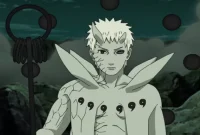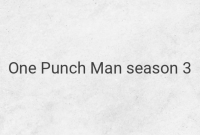The world of One Piece is filled with intriguing mysteries and unanswered questions. One such mystery revolves around Vice Admiral Garp’s choice not to save his own grandson, Portgas D. Ace, during his execution in Marineford. This puzzling decision has left fans wondering about Garp’s motivations and the potential outcomes if he had intervened.
Ace, the adopted child of the legendary pirate Gol D. Roger, faced defeat at the hands of Blackbeard on Banaro Island. This defeat led to Ace’s imprisonment in Impel Down and his subsequent scheduled execution in Marineford. As news of Ace’s impending execution reached his adopted brother Monkey D. Luffy, the captain of the Straw Hat Pirates, he embarked on a perilous journey to rescue his beloved sibling.
Unfortunately, Luffy’s efforts proved to be in vain as Ace was already on the execution stage when he arrived at Marineford. The battle between the forces of Whitebeard, also known as Shirohige, and the Marines was underway, with the goal of stopping Ace’s execution. Amidst the chaos and bloodshed, Garp, as Ace’s grandfather, remained a stoic figure, silently observing the events unfold.
Many fans have wondered why Garp chose not to intervene and save his own grandson. It is speculated that Garp’s sense of duty and loyalty as a Marine clashed with his personal connection to Ace. Despite Ace being Roger’s adopted child, Garp considered him his own grandson and may have been torn between his duty to the Marines and his love for Ace.
Some believe that Garp was waiting for Ace to call out or plea for help before he would step in. Garp’s pride as a Marine and his desire to maintain his position as Vice Admiral may have influenced his decision. However, it is widely believed that Garp would have willingly sacrificed his position and reputation to save Ace, had Ace asked for his help.
The question then arises, why didn’t Ace ask Garp for assistance? It is believed that Ace prioritized the reputation of his pirate crew and did not want to burden Garp with the consequences of lending aid to a pirate. Ace’s sense of pride and his desire to protect his crew may have clouded his judgment, ultimately leading to his tragic demise.
It is important to note that Ace’s death was not solely due to the execution itself, but rather the fatal blow dealt by Admiral Akainu. This turn of events sparked outrage and further intensified the battle. In the midst of the chaos, Garp’s emotions were running high, and it is said that he attempted to kill Akainu. However, Admiral Sengoku, the fleet admiral at the time, intervened and stopped Garp, preventing him from taking revenge.
The unanswered question of Garp’s inaction during Ace’s execution has prompted fans to speculate on various intriguing possibilities. What if Garp had saved Ace? How would it have affected the outcome of the Marineford war? Alternatively, what if Garp had killed Akainu? How would it have changed the course of events in the One Piece world?
These questions and the ambiguity surrounding Garp’s choice not to save Ace continue to fuel discussions among fans. Eiichiro Oda, the creator of One Piece, has masterfully crafted a storyline that keeps fans engaged and intrigued. The events and facts presented in this article are all derived from Oda’s manga, ensuring their credibility.
In conclusion, the mystery of Garp’s inaction during Ace’s execution in Marineford remains a compelling topic of speculation for fans of One Piece. The complex relationship between Garp and Ace, as well as the potential outcomes if Garp had intervened, add depth to the already intricate narrative. One Piece 1087 delves into this thought-provoking question, leaving fans to ponder the untold possibilities in the world of pirates and Marines.




